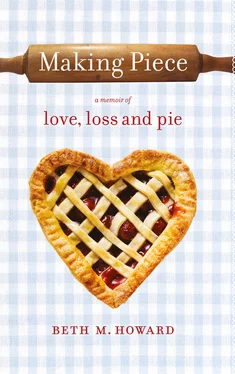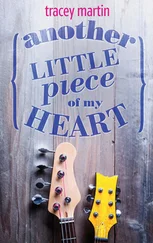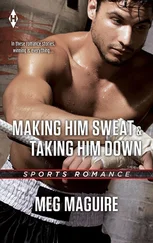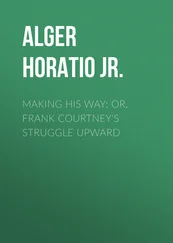Beth Howard - Making Piece
Здесь есть возможность читать онлайн «Beth Howard - Making Piece» — ознакомительный отрывок электронной книги совершенно бесплатно, а после прочтения отрывка купить полную версию. В некоторых случаях можно слушать аудио, скачать через торрент в формате fb2 и присутствует краткое содержание. Жанр: unrecognised, на английском языке. Описание произведения, (предисловие) а так же отзывы посетителей доступны на портале библиотеки ЛибКат.
- Название:Making Piece
- Автор:
- Жанр:
- Год:неизвестен
- ISBN:нет данных
- Рейтинг книги:3 / 5. Голосов: 1
-
Избранное:Добавить в избранное
- Отзывы:
-
Ваша оценка:
- 60
- 1
- 2
- 3
- 4
- 5
Making Piece: краткое содержание, описание и аннотация
Предлагаем к чтению аннотацию, описание, краткое содержание или предисловие (зависит от того, что написал сам автор книги «Making Piece»). Если вы не нашли необходимую информацию о книге — напишите в комментариях, мы постараемся отыскать её.
Making Piece — читать онлайн ознакомительный отрывок
Ниже представлен текст книги, разбитый по страницам. Система сохранения места последней прочитанной страницы, позволяет с удобством читать онлайн бесплатно книгу «Making Piece», без необходимости каждый раз заново искать на чём Вы остановились. Поставьте закладку, и сможете в любой момент перейти на страницу, на которой закончили чтение.
Интервал:
Закладка:
My tears cascaded down like Multnomah Falls and they didn’t stop for ten months. They ran and ran, creating permanent puffy eyes and altering my face with so much stress old friends no longer recognized me. The tears ran the entire flight to Germany, while I sat in business class and Marcus flew in a metal box in cargo. The tears flowed all through the week I spent in Germany, from the moment his grief-stricken, ashen-faced parents picked me up at the Stuttgart airport, to when they took me to the guest apartment where Marcus’s suits were hanging in the closet.
My tears kept on flowing through the German funeral, a formal and elegant church service, packed with Marcus’s coworkers, accompanied by a quartet of French horns playing Dvorak’s “From the New World” and presided over by the same pastor who’d married us. The tears gushed through the informal and quiet burial of Marcus’s ashes, and through the final meeting at the Tiefenbronn Rathaus, the place where we had signed our marriage certificate, and where I was required to sign his death certificate.
The tears came in endless waves. They came by day, by night. My tears did not discriminate in their time or place. From Germany, my tears followed me back to Portland, and then back to Texas, where I collected my dogs, packed up my MINI Cooper, said goodbye to Betty, goodbye to my miner’s cabin, goodbye to the desert that had nurtured my creativity all summer, goodbye to life as I had known it. The tears were ever-present, ever-flowing. It was a wonder I wasn’t completely dehydrated. There was only one thing that defined me now: grief. Complicated grief. Grief on steroids. It was something I was going to have to get used to.
CHAPTER 3
What I thought was a heart attack, or a cosmic connection to Marcus as his heart struggled to keep beating and then stopped, turned out to be a hyperthyroid. I had struggled with this autoimmune condition for a few years, it was the culprit that kept me from getting pregnant, but I had finally gotten it in check. (Marcus and I had accepted that having kids wouldn’t fit our lifestyle anyway. While we were in Germany, we got a dog, Jack, instead. Jack’s Mexican stepsister came later when Daisy followed me home one afternoon during Marcus’s assignment in Saltillo.) A simple blood test—along with the goiter in my neck that had exploded to the size of a grapefruit—indicated the hyperactivity had returned with a vengeance. My T-levels were off the charts.
Without any other purpose or sense of clarity to guide me, I let my medical problem determine where to go next. All I knew was that I couldn’t stay in my miner’s cabin in Texas. I spent two weeks back in Terlingua, recovering from the three weeks of funeral-related travel. Everything I had loved about the place before—the isolation, the vastness and emptiness of the desert wilderness—now threatened to consume me, and draw me further into a new world of quiet madness. I maintained just enough sanity to know I needed to be somewhere else, somewhere I could be around people. Normally I would have returned to L.A. That’s where my parents and two out of my four siblings lived; it’s where I had spent the bulk of my adult life, and it’s where I always fled to when Marcus and I hit a rough patch. But this time, in this new, debilitating, fragile, uncertain state of being, and because I didn’t have Marcus to run back to, I ran to the next closest thing: a place filled with memories of him.
Portland made sense for many reasons. First of all, I had no home anywhere else. Portland was affordable. Portland was where my trusted endocrinologist practiced and he could treat my over-active gland. Portland may have been the place where Marcus died, but it was still the place where we had lived and loved. And Portland was where our—er, my— furniture was stored.
Portland was where we— I —had friends, friends who knew both of us, knew us as a couple, friends who could lend support as I searched for meaning in life. Because so far, I couldn’t find any meaning left at all. I was so down on life, so lacking in any enthusiasm to face each new day as it dawned, I couldn’t even get excited about my morning coffee. Portland was where my memories of Marcus could help me feel more connected to him. In Portland, I would also attend a grief support group. I had already done my homework and found a free program. I couldn’t wait to get started. I couldn’t wait to stop feeling pain. Because if I continued feeling the way I was—which is to say lost, confused, angry and sad, oh, so very, very sad—I was going to be joining Marcus in the afterlife sooner rather than later. Impatient has always been my middle name. I didn’t know if I could ever feel good again, but if it was possible, like I’d heard it was possible from others who had lost someone they loved, I wanted to get going.
Wanting to make things right again and demanding immediate results was ingrained in my nature. When I was eight years old, I went to horse camp, the Bortell’s Bar-Rockin-B Ranch in Iowa, where my sister and I spent one full week learning to groom, saddle and ride horses. I was very excited. One of the first things our horse instructor told us was there would be an award given to anyone who fell off their horse and got back on to ride again. It was called the “Spurs Award.” That sounded nice—I nodded my head approvingly—but I wasn’t going to fall off my horse.
Of course, by the second day, I did fall off. I don’t remember how or why I ended up on the ground—those horses must have been the world’s tamest animals seeing as they were employed at a kids’ camp—but what I do remember is that I wanted to win the Spurs Award. By God, I was going to get back on and ride again. From the moment I realized I was on the ground and no longer in the saddle, I brushed myself off and went running after my horse, chasing it around the arena, so I could get back on—immediately. I was determined. I was going to win that award.
I chased old Brownie until he came to a stop and, grabbing the stirrup, climbed back on, breathless and proud. At the end of the week, at the closing ceremonies for camp, when all the awards were granted—for archery, for team spirit, for cleanest cabin—I was called up to receive my award, a paper certificate with my name on it: the Spurs Award. When the horse instructor handed it to me, he commented, “When we said get back on your horse and ride again, we meant sometime before the week is over, not ten seconds after you fall off.”
I wasn’t that eight-year-old girl anymore. I was forty-seven and wishing I was dead, wishing I had died instead of Marcus. And yet, somewhere in between the dark cumulus clouds of grief, I still had the will to live, the determination to get back on my horse. If I was going to be forced to grieve, then I was going to face it head-on. I was going to be the best student in grief school. I was going to get straight A’s. I was going to apply my usual tenacity and grit—and impatience—the way I did when I graduated early from both high school and college, and conquer my grief. I was going to run after the horse like Lance Fucking Armstrong and win the “Spurs Award for Grieving Widows.”
The day of my first grief support group meeting coincided with a rare phone conversation with my mother, who had been placed on my growing roster of People to Avoid While Grieving. One thing I learned very quickly after Marcus died was the outrageous comments people are capable of making when someone you love dies. It was as if certain friends, family members and acquaintances were suffering not from the grief or shock of Marcus’s death, but from verbal diarrhea. From day one, various people’s mouths ran awry with inappropriate and hurtful comments—words which came out like loose stool over which they had no control. They couldn’t manage to simply say, “I’m sorry for your loss.” Which is all anyone should say. Period.
Читать дальшеИнтервал:
Закладка:
Похожие книги на «Making Piece»
Представляем Вашему вниманию похожие книги на «Making Piece» списком для выбора. Мы отобрали схожую по названию и смыслу литературу в надежде предоставить читателям больше вариантов отыскать новые, интересные, ещё непрочитанные произведения.
Обсуждение, отзывы о книге «Making Piece» и просто собственные мнения читателей. Оставьте ваши комментарии, напишите, что Вы думаете о произведении, его смысле или главных героях. Укажите что конкретно понравилось, а что нет, и почему Вы так считаете.












